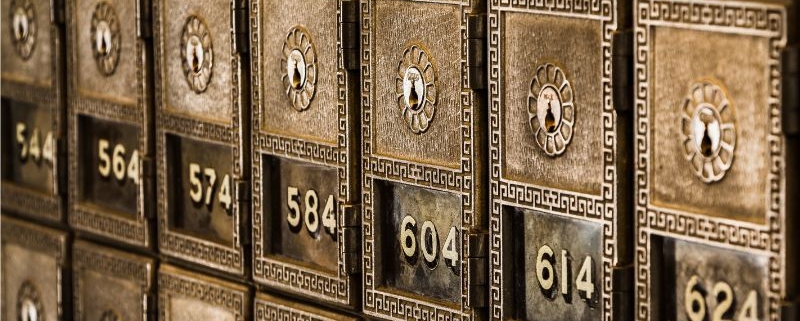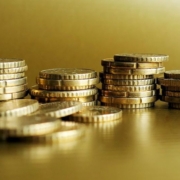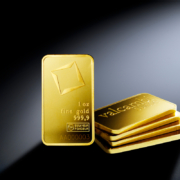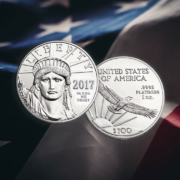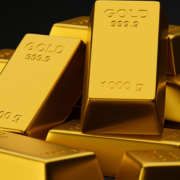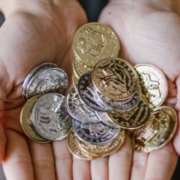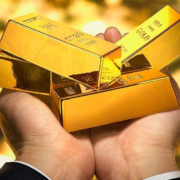What is a precious metal?
When it comes to precious metals IRA’s, a precious metal is either gold, silver, platinum, or palladium. This doesn’t just mean a nice pair of earrings; each precious metal has to meet very exacting quality standards which are in excess of 99% pure.
Precious metals prove popular as investments thanks to their ability to hold onto their value, even when the stock market is looking stormy. They are seen as a safe bet for many investors, who choose to add precious metals to their portfolios as a way to hold their money in something which can retain its value and even grow no matter what might be happening in the economy.
Precious metals are seen as good long-term investments and are often part of an investor’s pension plan. Having said that, it is not considered wise to put all of your eggs into one precious metals basket, and most experts advise that precious metals should not make up more than 5-10% of your investment portfolio.
A precious metal IRA works in much the same way as a typical Individual Retirement Account (IRA) but has been specially designed with precious metals in mind. It allows you to hold precious metal stocks, mutual funds that invest in bullion, stocks, or both, and EFTs that track indexes.
It is important to remember that a self-directed IRA has tax deductible contributions whilst a Roth IRA has tax free distributions. However, you should keep in mind that precious metals do not pay interest, dividends, or other returns and so this investment will not make full use of the tax-free growth element of investing through an IRA.
What to consider when storing precious metals
When you invest in precious metals, you are investing in a physical asset, which means you also need to give some thought to how and where it should be stored. You do have the option to store it at home, and many people prefer this as they always know where their investment is and can check on it at any time, but you need to consider whether this is safe enough.
Your precious metals are worth a lot of money, so they will need something a little more secure than simply putting them at the back of your sock drawer. You not only need a safe spot within your house, but you will also need to review the security of your property as a whole, paying close attention to locks, alarms, and camera systems to make sure you are fully protected.
Alternatively, you could entrust your investment to someone else’s car. Banks will often offer storage in their vaults, which have huge levels of security in place, but do run the risk of shutting down and you will be charged a fee for their services.
You could also look at other methods of external storage such as safety deposit boxes, but the levels of security of these also need careful attention. One good option is to consider precious metals depositories which are designed to cater for this exact situation, with everything from climate-controlled facilities and segregated storage.
How can you store precious metals?
If you choose to store your precious metals at home, then security needs to be your first consideration. Investing in a private safe can be a great way to keep your precious metals locked away from anyone who breaks into your home. Make sure that it is both fireproof and waterproof as well as strong and sturdy and is installed somewhere out of the way, so you are not advertising to visitors that you have something of value in your home.
For greater levels of security, a bank vault can offer additional peace of mind. You can be confident that you are storing your metals in a well established and safe place with professionals who know exactly how precious metals should be stored.
The bank will have its own insurance in place should the worst happen, so you can be confident of some sort of cover, but you will need to make sure that you check where you stand. In addition to the vault, your bank may also offer the services of a safe deposit box, which means only you will ever have access to the contents.
It should be kept in mind that there are no federal laws governing the safe deposit boxes at banks, and the bank is not required to compensate you if your precious metals are lost or destroyed whilst in one of these boxes.
Third party depositories are an increasingly popular choice for precious metal investors. They are able to house larger collections in the safe conditions that protect your precious metals from the elements and the environment as well as thieves. They have optimal levels of security in place including entrance restrictions and constant surveillance, with all activities being recorded or monitored.
Many can offer to keep metals stored away from those belonging to other people, giving you an individual storage compartment allows private use if you feel that this is something which is necessary.
Can precious metals be stored at home?
It is possible to store precious metals at home, but you should check with your home insurance first. They will need to know the value of your metals and the security measures that you have taken before they can confirm whether they will be able to cover you for any potential loss. There will often be an option to purchase extra coverage for this sort of situation.
Can you store precious metals externally?
When choosing an external storage provider, make sure you have absolute confidence in them and their security. Look at protection they offer and what insurance policies are included. Make sure that you ask questions about how the metals will be stored and what the conditions will be like. You should also investigate how you gain access to the metals when you want to, and what the restrictions might be, such as opening hours.
When storing your precious metals externally, there are three main options which are banks, precious metal depositories and safes. Banks are a safe option as access is limited and they offer highly secure storage solutions.
However, the downside of storing in banks is the cost of storing your precious metals which can range from $200 – $500 annually and access to your metals may be limited to working hours only, which clashes with people’s schedules. The location of the bank should also be taken into consideration in case of an emergency.
Depositories are a good option when storing a large amount of bullion and they offer optimal levels of security. Precious metals that are stored within depositories are also covered under insurance policies and this covers theft or damage, although this is highly unlikely due strict and rigorous security procedures. You should also consider the location of the depository and ease of access in case of an emergency, and you need quick access to your precious metals.
If you are looking to store your metals at home, you’ll need a secure safe. Safes are hard to move due to their size and weight and they may also protect its contents against floods and fires, this does depend on the durability of the safe.
Safes may be a cheaper alternative as it’s a one-time purchase, however they do not benefit from the security and insurance provided by a bank or depository, it is very important to carefully consider storing your precious metals at home in a safe.
Purchase precious metals with Wall Street Metals!
If you’re looking to invest in precious metals, then Wall Street Metals is for you! We don’t charge any commission and we make every single step transparent, helping you make the best decision. We’re not built for huge corporations; we’re built for individuals.
To get started, you’ll need to open a precious metals IRA account, and this can be completed by contacting us today. Secondly, you need to fund your account which can be completed by bank transfer. Finally, you are now ready to start investing in gold and silver IRA approved precious metals!
If you have any questions regarding our products or services, please contact our friendly team today who will be more than happy to help.

